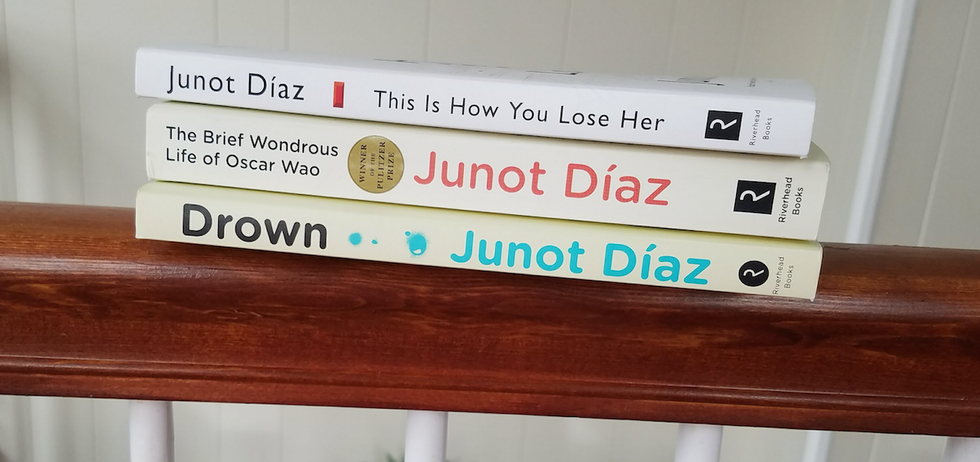On Monday, April 9th, 2018, Junot Diaz published his essay “The Silence: The Legacy of Childhood Trauma” on the website for “The New Yorker” magazine. The essay recalls Diaz’s chilling experience of being raped by “a grownup [he] truly trusted” as a boy of merely eight years old in the Dominican Republic. He then went on to struggle with mental illness, a plethora of loves lost, and picking up the pieces his rapist left behind. He also goes into how the trauma influenced his short stories and novel. I won’t summarize the essay, because it is Diaz’s story and is one worthy of being heard in his voice, not lump-summed in mine.
Take thirty minutes to read it if you haven't, then come back to me. Trigger warnings for sexual abuse and assault, depression, and suicidal thoughts or actions.
I am privileged to say I’m not one of the one in six women who are victims of sexual assault, but I know some of them. And I’m certainly not one of the one in thirty-three men who experience sexual assault, but I even know a handful of them.
Diaz’s article opens in such a moving way, where he places guilt by omission on his already heavy shoulders. He goes on to think of how many people he could have helped if he had come to terms with his assault sooner, made it public sooner, admitted it to someone just a bit sooner. But he has no reason to feel guilty because sexual assault isn’t something anyone should have to come to terms with, it’s something that should never happen. Period.
Anytime a guy has admitted to being a victim sexual assault to me, it often was brought up in an incredibly uncomfortable “no homo” joke that was awkwardly laughed off and glossed over, the subject quickly changed. The gravity of this person’s admission takes too long to sit in, and by the time it does, it feels as though a window for bringing it back up has come to a close. My heart aches for anyone who has experienced this scenario, as a victim or listener, male or female.
I hope that with Diaz’s bold move to share his story on as wide a platform as “The New Yorker” along with the status he holds as a best-selling, Pulitzer-winning writer and MacArthur Fellow, his essay will allow other sexual assault victims to find the courage to raise their voices against their attackers. I hope that even if incarceration is next to impossible and revenge unneeded, such as in Diaz’s case, these victims find peace after their pain. No one on this Earth deserves to walk through life with even one percent of the pain Diaz experienced after that fateful day forty-odd years ago. The first step to that is to speak. Yes, it sounds terrifying to confront such trauma but to address it is to take the first step to dismantling its power over you.
Speak up, speak out, and speak loud.
If you or someone you love is a victim of sexual violence, you are NOT alone.
RAINN’s Hotline is available 24/7: 1-800-656-HOPE(4673) and more resources and statistic, like ones mentioned above, can be found on RAINN.org.



















